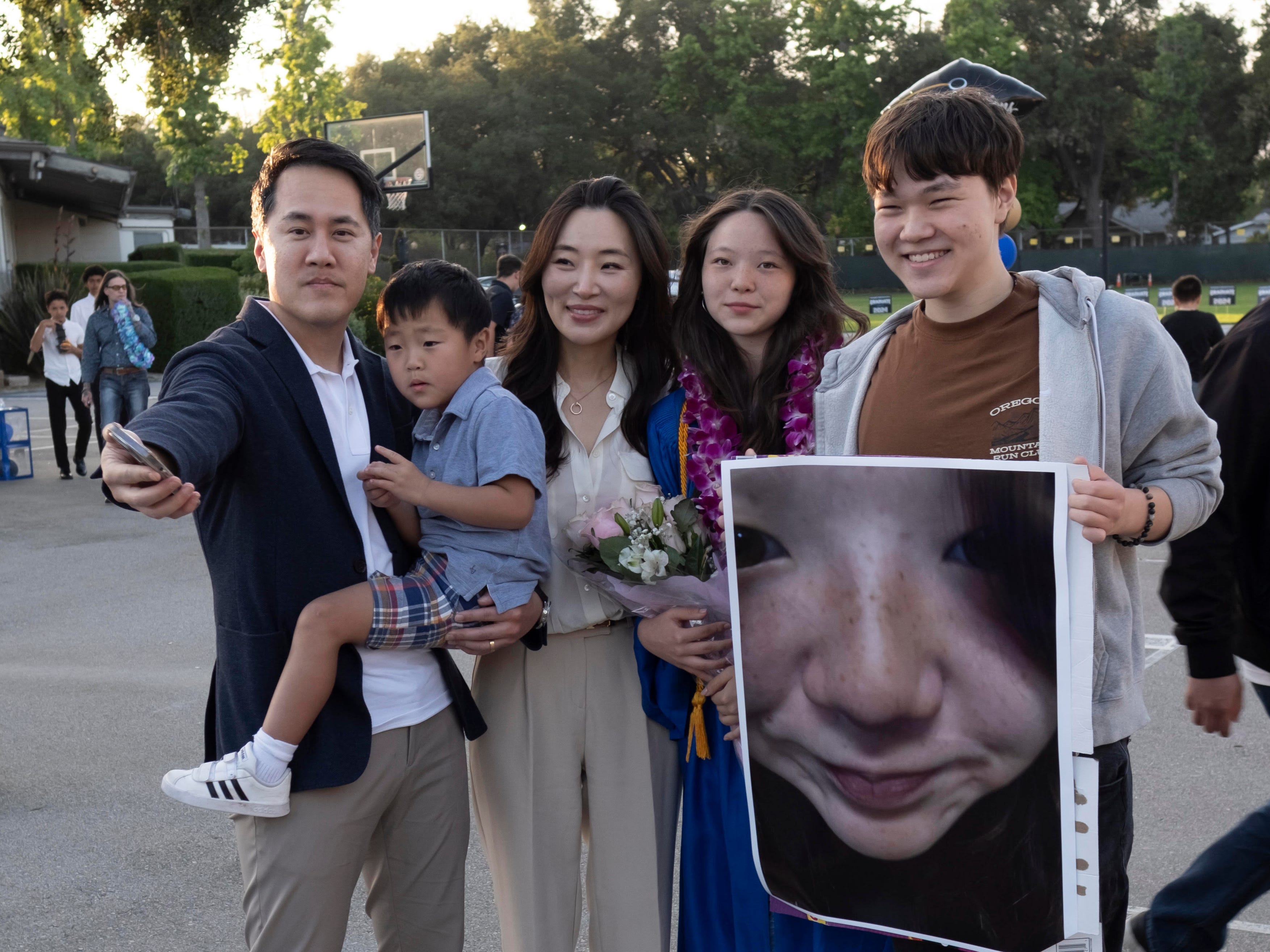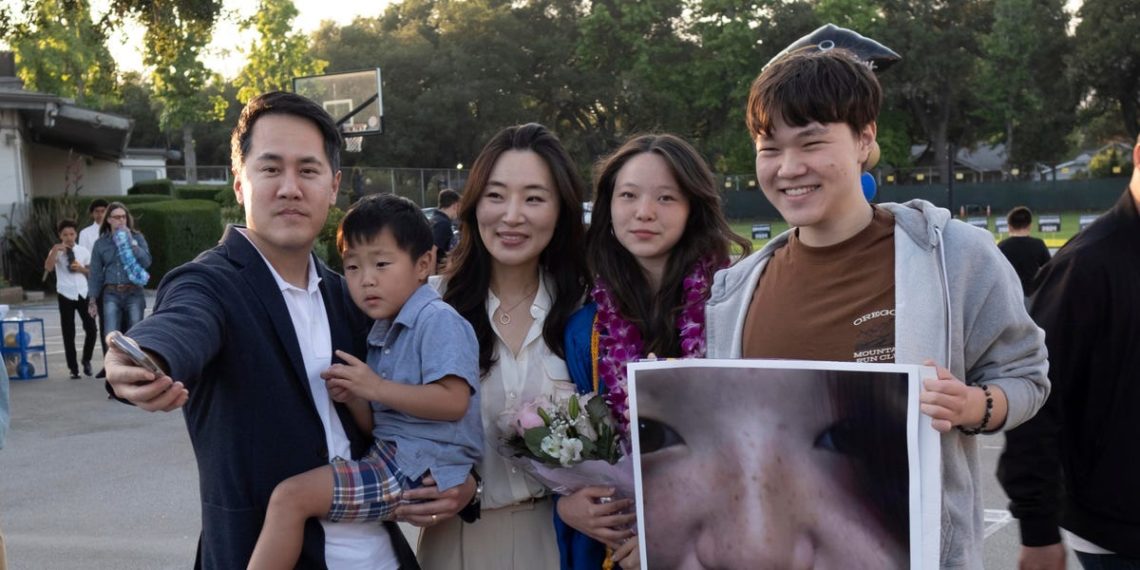
Courtesy of Wenjay Sung
This as-told-to essay is based on a conversation with Wenjay Sung, a 45-year-old physician in Pasadena, California. It has been edited for length and clarity.
My wife, Su Sung, and I were both previously divorced. We connected through our shared experience of the trauma and hardship of our experiences. Six months after meeting in 2018, we got engaged.
I went from being a single guy in Los Angeles to a dad almost overnight. Her children from a previous marriage, Mckyle and Alicia, were 11 and 9.
I love being married again and becoming a father to my stepkids — I consider them my children. They call me ba, which means dad in Mandarin Chinese. I drop them off at school, attend PTA meetings, and meet with their teachers, counselors, and friends’ parents.
When it came time to write my trust, I wanted to leave my assets to them as if they were my biological children.
In 2019, we had our son, Eddie
We weren’t planning to have another kid. At the time, my wife was 38, and she didn’t think she could get pregnant again. It was so joyful to add Eddie to our lives.
Although my stepkids don’t share my last name, I love all three of my kids and decided to divide my assets equally among them.
I have a lot of assets, as does my wife — she’s a nurse practitioner in aesthetics.
I put together a trust at age 40
I wanted to make sure my kids would all be protected. My baby brother died of an overdose. He didn’t have a will or trust, and his case is still in probate. The courts are backed up, and it’s a mess. We don’t want our kids ever to have to deal with that.
We placed our assets inside a living trust and equally split everything, including a $3M house, a $1M doctor practice, and $800,000 in retirement accounts.
I plan to max out all the kids’ retirement accounts and HSA accounts annually. If the economy grows, those accounts should continue to grow.
The older kids didn’t care much at first
When we first told the older kids about the trust, they said, “Okay, whatever,” and returned to playing video games. More recently, we discussed the trust with them again, and Mckyle appreciated that it was split equally among all the kids.
Alicia said poignantly, “The ability to leave behind a piece of yourself with those you trust to carry your name is the reason for life.”
In 2024, I had a health scare
I went in for a routine physical, and my doctor said after 40, I should get a “coronary calcium score” since I have a family history of a heart attack on my dad’s side.
Afterward, further tests and scans were recommended, and what is commonly called the “widow maker” was found to be a blockage to the LAD, one of the main arteries that supply blood to the heart muscle. The nickname is due to its lack of symptoms when blocked, sometimes resulting in men suddenly dying from massive heart attacks.
Immediately after the results, I went to the ER, and my cardiologist recommended an angiogram. He removed a 90% blockage. It’s scary, and I could’ve died if we didn’t catch it. It brought to reality that life is very short.
I’m not planning to retire. Retirement will bore me, and I feel like I’ll just die quicker if I stop working. As a doctor and owner of my own practice, I can work for the rest of my life.
Life can be fleeting
Anything could happen to any of us. We wanted to impart that information to our children.
We’ve worked hard for our professional success, and we wanted them to understand that the trust means they will be provided for if anything happens to us. They now understand the importance of having assets.
The post I split my $5 million assets equally between my child and stepchildren in my trust. Life is fleeting, and I want them all to be protected. appeared first on Business Insider.




